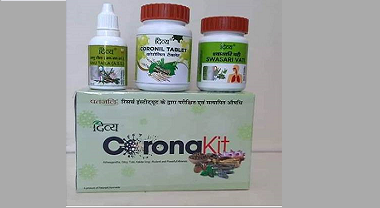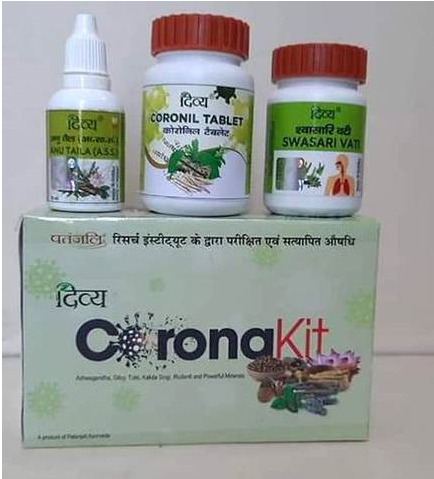Madras High Court Decision for Use of Word ‘Coronil
With the advent of globalization and rapid rise in the business, the issues of trademark infringement suits have been on the rise. Many such infringement cases can be seen in the market which probably goes unnoticed. The recent case of Arudra engineer vs. Patanjali is a striking example of trademark infringement. The basic fundamental proposition in the case of infringement is the similarity of the mark that is used and how that mark can create a sort of distinctiveness and likelihood of confusion as to the origin of the goods. This confusion has to be made in the context of the consumer. The reasonableness of the mark has to be assessed either as a whole or even some aspect of it. The burden of proof lies on the plaintiff who contends the similarity.
Facts
M/s Arudra Engineers Private Limited, the plaintiff, a company registered under the Companies Act, is in the business of chemical cleaning and manufacturing of material handling systems and polymeric epoxies for various factories in and outside India. It has been stated by the plaintiff that the company has been in this business for the past 20 years and has built a reputation within its fraternity. The plaintiff has a registered trademark in the name of ‘Coronil-92B’ and Coronil-213 SPL in the year 1993 which has been renewed and is in force till 2027.
[Image Source: indianlawwatch]
The product which was provided by the plaintiff is an anti-corrosion product. Meanwhile the defendant, Patanjali Ayurveda introduced a new product in the market which the defendant claimed that can cure Covid-19 and can boost immunity for cough and cold. The plaintiff filed the suit claiming an infringement and seeking a permanent injunction and also requesting to destroy the stock of the product depicting the name Coronil.
Analysis
The contention put by the plaintiff revolves around Section 29 of the Trademark Act, where section 29 protects the registered trademark by a person who is not a registered proprietor and uses a mark identical or similar to the registered trademark in relation to dissimilar goods or services. The contention was also about taking unfair advantage of the reputation of the registered trademark which will confuse the mind of consumers hitting the distinctiveness of the mark. The registration of the trademark of the plaintiff was done way back hence it has acquired a market reputation. The defendant’s use of the said mark will hamper the distinctiveness of the mark. The plaintiff argued that the term ‘Coronil’ was distinctive in the sense that it was an anti-corrosion product that symbolized ‘nil corrosion’, hence the name ‘Coronil’.
The plaintiff also contended the changing attitude of the defendant where at first the defendant projected its product as a cure to covid-19 and then changing the stand to only immunity booster. The plaintiff also relied upon a couple of cases such as Blue Hill Logistics Private Ltd., Vs. Ashok Leyland Limited wherein the division bench examined the issue concerning section 29(4)(c) of the Act and held that there would be confusion in the minds of the common man owing to the two similar marks. In the case of N.S.Krishnamoorthy, as put by the plaintiff, wherein the court held that registration of a composite mark confers upon the registered proprietor, the monopoly over the trademark taken as a whole.
The defendant in its contention pointed out the reputation of the plaintiff in India and pointed out that the plaintiff doesn’t seem to have any reputation in India which means that there cannot be any such confusion among the consumer since the consumer base is only at the place of business of the plaintiff and not elsewhere. The defendant also relied upon the case of AstraZeneca UK Limited & Anr. Vs. Orchid Chemical & Pharmaceuticals Ltd where it was stated by the division bench that in the trade of drugs, it is a common practice to name a drug by the name of the organs or ailments, treatments for which are the main ingredients of the drug. Hence getting its support, the defendant tries to maintain its field for no infringement.
The Madras High Court decided in favor of the plaintiff granting an interim injunction against the use of the mark by the defendant. It states that the mark of the plaintiff has been registered and is in use for a long time. It is the prerogative of the defendant to check the name in the trademark registry before using it. The court also pointed out that as the plaintiff various organizations are working without recognition.
Author: Saransh Chaturvedi (an advocate) currently pursuing LLM from Rajiv Gandhi School of Intellectual Property Law (IIT Kharagpur). In case of any queries please contact/write back to us at support@ipandlegalfilings.com.




